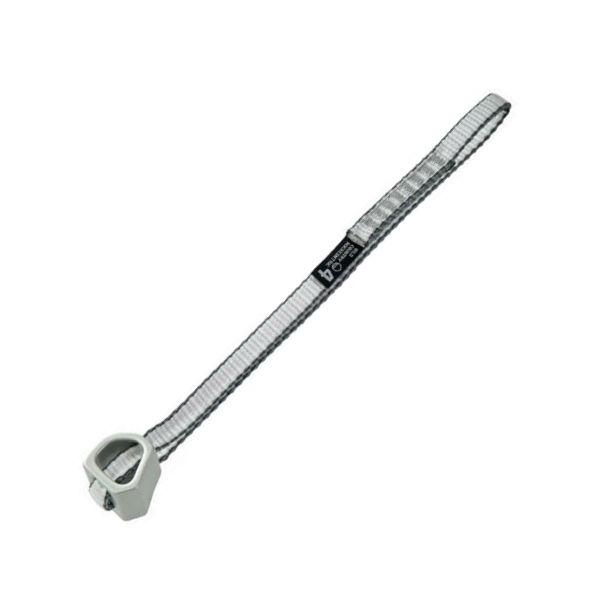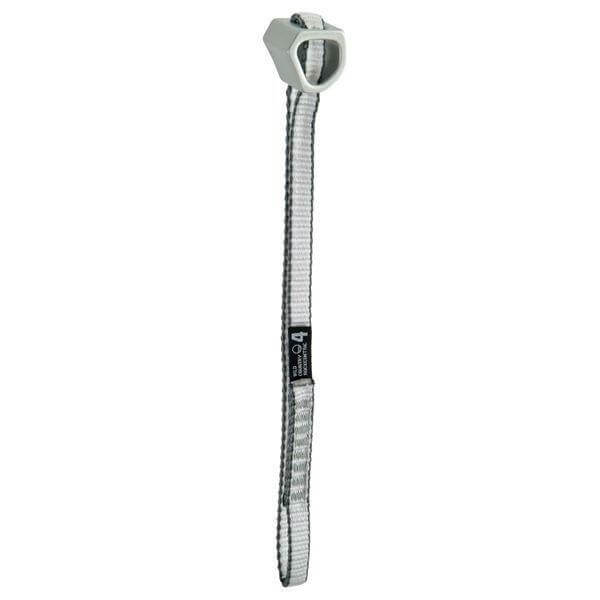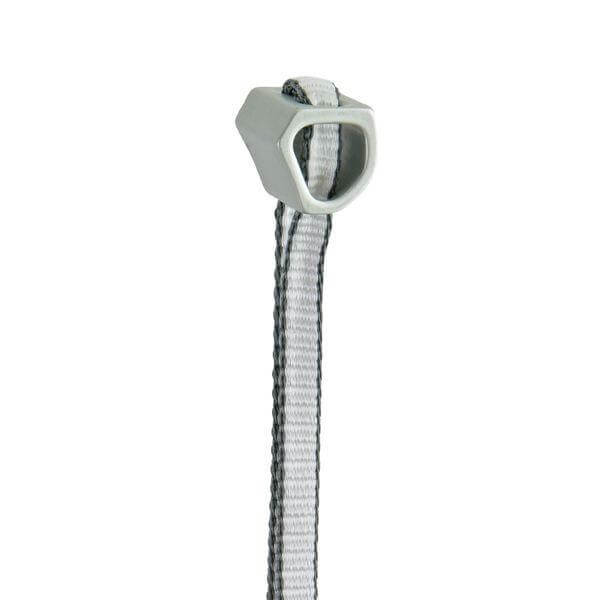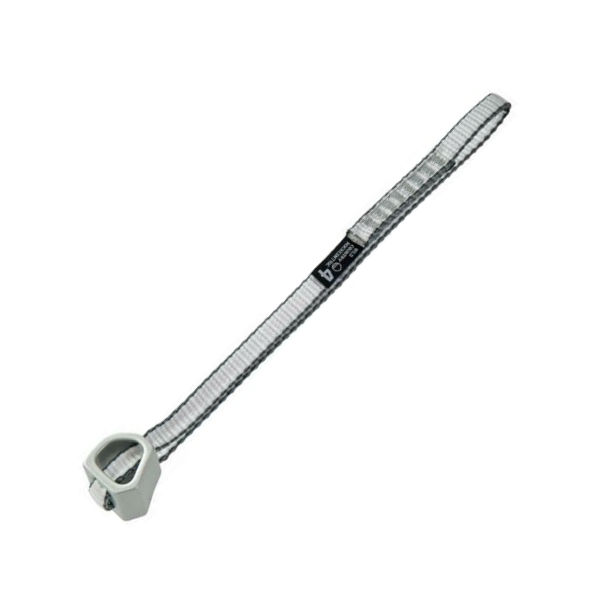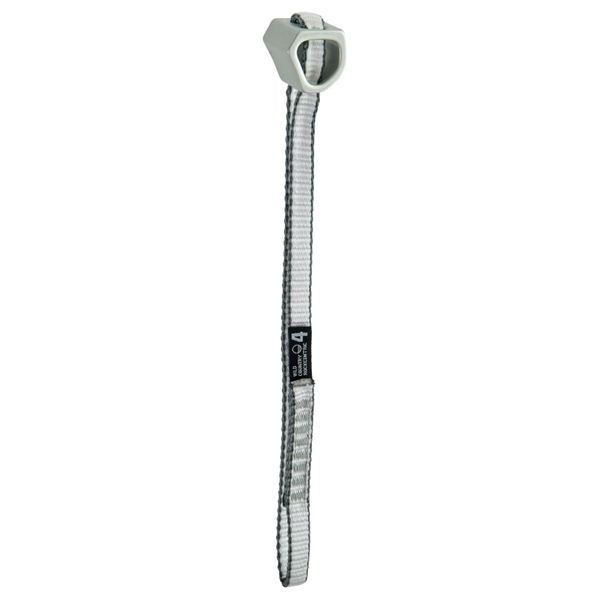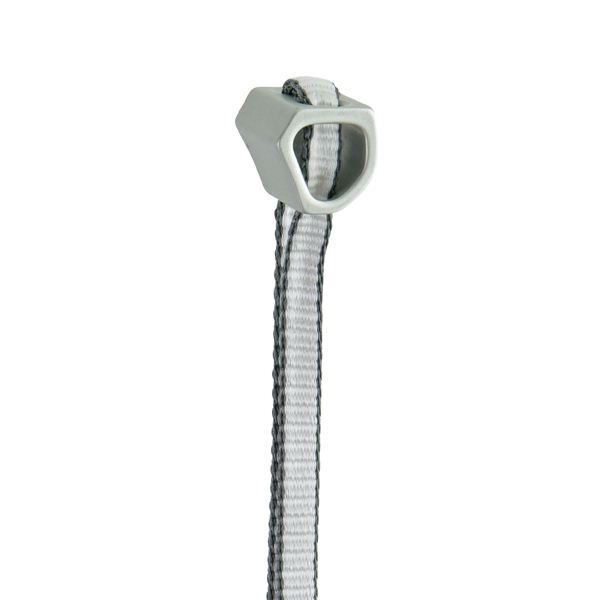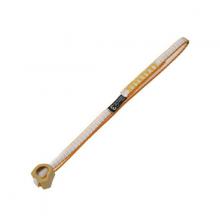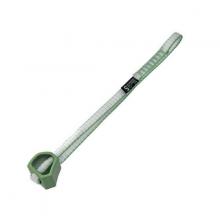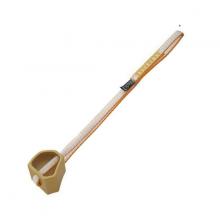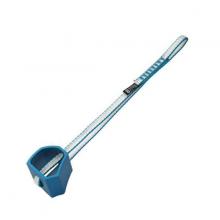How to use Rockcentric, general information and warnings with instructional pictures.
Rockcentric 4
Description
A combination of the best ideas behind the trusty old hexentric with rock geometry. The rockcentrics are brilliantly light, easy to use, offering plenty of placement options and come with a colour co-ordinated dyneema sling that helps keep them firmly wedged once placed.
14kn Dyneema sling
4 placement options
Side tapers
Lightweight
Great for winter
Available in set 3-9
Retail price
When you click a link below and then checkout online, no matter what you buy (climbing gear or not), we get a small commission that helps us keep this site up-to-date. Thanks!
Weight (g / oz)  Weight (g / oz)In grams and ounces, the weight, as stated by the manufacturer/brand. | 43 g / 1.51 oz |
Size  SizeThe numerical size as stated by the manufacturer/brand. Generally the size will be between 1 and 15, but there is no standard, so each "3" you see could have totally different dimensions. |
4 |
Color  ColorFor quick size identification purposes. Sometimes the head of the hex is not anodized, in this case, the stated color will come from the sling. |
Silver |
Strength (kN)  Strength (kN)In kilonewtons, the passive strength as stated by the manufacturer/brand. All hexes are rated in passive strength, instead of active strength like cams. |
14 kN |
Main Material  Main MaterialThis field refers to the hex head. A majority of hex heads will be 6061-T6 Aluminum, but we don't write that in all willy nilly and only have input here after we've confirmed the material with the manufacturer/brand. |
6082 T6 alloy |
Sling  Sling MaterialThe material that takes up the majority of the "sling." Note: If a hex has a wire sling with tubular protection, we just call this "wire." Similarly, when we say "Dyneema" this does not mean the sling is 100% Dyneema. It will be some combination of Dyneema and nylon (there are no 100% Dyneema slings). Since you cannot dye Dyneema, the colored portion of the sling is made of nylon. | Dyneema, single sling loop |
Range (in / mm)  Range (in / mm)In inches and millimeters, the maximum range as stated by the manufacturer/brand. This is measuring the minimum length on the small side of the hex, and the maximum size of the widest part of the hex. | 1.10 in - 1.42 in 28.00 mm - 36.00 mm |
Certification  CertificationsThe main climbing gear certifications are CE and UIAA--and normally the UIAA creates the rules that the CE body also supports. When possible, we try to list all the certifications the product carries. To sell a climbing product in Europe, the device must be CE certified. There are no official requirements to sell climbing gear in the US. The UIAA certification is a voluntary process. Learn MoreRock and Ice Certifications Guide |
3-Sigma, CE, EN, UIAA |
No reviews yet.
In the end the Rockcentrics performed well. If I am carrying large hexes the Rockcentrics are my first choice. And in smaller, strangely shaped cracks the Rockcentrics definitely fit more easily than angular hexes. My complaint about the stiffness of the slings still stands. The trade-off with the smaller Rockcentrics versus wired hexes is strength, flexibility and weight at the cost of a couple inches of reach. But that is a trade-off that many climbers will be willing to make, especially if you want to supplement an existing rack or simply plan on using them in anchors.
Pros: curved sides make seating for placements more effective; lightweight; strong; inexpensive.
Cons: Dyneema slings are harder to place than wired hexes.
If you know of a good product video that should be here, let us know, and we'll put it up.
If you're looking for gear videos in general, check out our Vimeo and YouTube channels to see the newest gear.
The UIAA equipment standard provides a baseline for equipment performance in a test lab under controlled conditions on new equipment. Although these test conditions are relevant to the conditions encountered climbing, conditions encountered at the crags and the condition of the equipment are equally important. This recommendation from the UIAA member federation The British Mountaineering Council (BMC) provides vital equipment information that is NOT explicitly addressed in the standard, particularly failure modes of the equipment and recommendations for the use, inspection, maintenance, and retirement of equipment.
A pictoral representation of the UIAA-124 and EN-12270 standards for chocks (which includes nuts and hexes).

